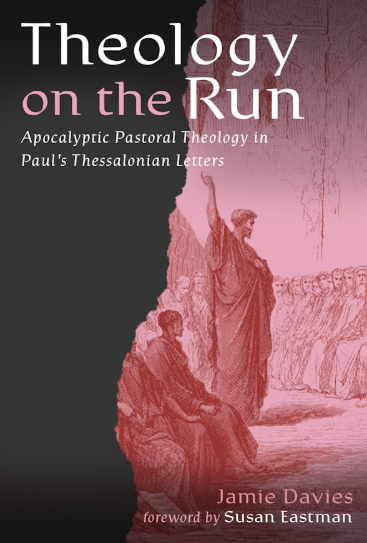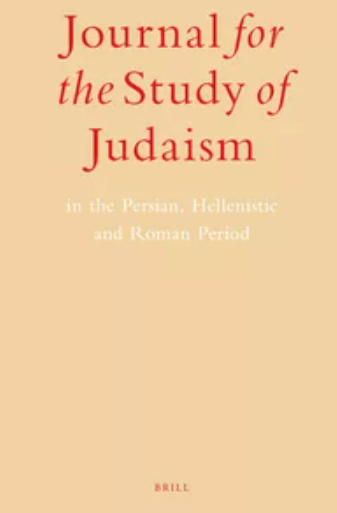[ 신간소개 ] 2025. 10. 16.
한 구절을 반복해서 읽고, 그 모호함을 탐구하며, 더 큰 텍스트 안에서 그 위치를 살피고, 동일한 저자의 다른 텍스트와의 관계 및 성경 정경 내에서의 위치를 성찰하는 것—이 모든 것은 헌신적 관계의 행위이다. 모든 헌신적 관계에서처럼, 이해하고자 하는 열망은 마땅히 사랑으로 규정된다. 그리고 그 열망은 통찰과 더불어 적지 않은 당혹의 순간들을 포함한다. 로마서에 관한 한, 요한 크리소스토모스의 애절한 질문인 "바울이여, 무슨 말을 하고 있는 겁니까?"는 사랑의 수고인 해석학적 과업을 적절히 표현한다.
'Readings in Romans'는 비벌리 로버츠 가벤타가 로마서와 맺어온 오랜 헌신적 관계의 결과물인 대표적 연구들을 한데 모은다. 총론적인 것에서부터 구체적인 주해에 이르기까지, 하나님의 능력, 인간의 자유, 그리고 교회와 이스라엘의 정체성과 같은 주해의 귀결과 씨름하는 글들에서부터, 칼 바르트와 시몬 베유처럼 로마서와 대화해 온 신학자 및 작가들과의 자의식적 만남에 이르기까지, 이 논문들은 사도 바울, 특히 그의 가장 영향력 있는 서신에 대한 가벤타의 광범위하고 사려 깊은 연구의 윤곽을 드러낸다. 이런 방식으로 이 글들은 로마서에 대한 그녀의 학문적 기여를 요약하는 동시에, 바울 자신이 증언한 하나님에 대한 급진적 이해에 대한 헌신의 증거가 된다.
가벤타의 결정판 로마서 주석의 필수적인 동반자인 이 책은, 수많은 학술지, 학회 발표문, 편집된 저작물에 흩어져 있던 글들을 한곳에 모음으로써 신약과 기독교 신학을 연구하는 학자들과 학생들에게 도움을 줄 것이다. 나아가 'Readings in Romans'는 바울을 연구하는 모든 이들이 기독교를 정의하는 가장 중요한 문서 중 하나인 로마서의 깊은 일관성, 풍부한 결, 그리고 지속적인 도전을 탐구하도록 초대한다.
To read a passage repeatedly, to examine its ambiguities, to probe its place in a larger text, to reflect on its relationship to other texts by the same author and its place within the canon of Scripture—all of these are acts of committed relationship. As in all committed relationships, the desire to understand is rightly characterized as love. And that desire involves more than a few moments of bewilderment along with insight. When it comes to the Epistle to the Romans, John Chrysostom’s plaintive question, "What are you saying, Paul?" is an apt expression of the hermeneutical task, itself a labor of love.
Readings in Romans brings together representative studies from Beverly Roberts Gaventa’s years of committed relationship with Romans. From the programmatic to specifically exegetical, from those wrestling with the consequences of exegesis—questions of divine power, human freedom, and the identity of Israel vis-á-vis the church—to self-conscious engagement with theologians and writers in conversation with Romans such as Karl Barth and Simone Weil, these essays highlight the contours of Gaventa’s extensive and thoughtful work on the apostle and especially his most influential letter. In this way they serve as an encapsulation of her scholarly contributions on Romans and, at the same time, a testimony of devotion to the radical understanding of God to which Paul himself witnesses.
An essential companion to Gaventa’s definitive commentary on Romans, this volume will assist scholars and students of the New Testament and Christian theology by gathering into one place writings scattered across myriad publications, including journals, conference proceedings, and edited works. More than that, Readings in Romans invites all students of Paul to explore the deep coherence, rich texture, and enduring challenge of one of Christianity’s most defining documents.
[ Contents ]
Part 1 Proclamation, Power, and Praise
1 "To Preach the Gospel": Romans 1:15 and the Purposes of Romans
2 The "Glory of God" in Paul’s Letter to the Romans
3 Power and Kenosis in Paul’s Letter to the Romans
4 From Toxic Speech to the Redemption of Doxology in Paul’s Letter to the Romans
Part 2 The Human, the Cosmos, and the Powers
5 The Shape of the "I": The Psalter, the Gospel, and the Speaker in Romans 7
6 Neither Height nor Depth: Discerning the Cosmology of Romans
7 Interpreting the Death of Jesus Apocalyptically
Part 3 God, Israel, and the Gentiles
8 On the Calling-into-Being of Israel: Romans 9:6-29
9 Thinking from Christ to Israel: Romans 9-11 in Apocalyptic Context
10 Questions about Nomos, Answers about Christos: Romans 10:4 in Context
11 Who Is "Israel" in Romans 9:30-10:21?: A Neglected Question
Part 4 Romans in Conversation
12 Where Is the "God of Israel" in Paul’s Reading of the Gospel?
13 Reading Romans on the Brink: The Continuing Challenge of Barth’s Römerbrief
14 "That Grace Should Come into Its Own": Romans 12:1-8 in and with Karl Barth’s Römerbrief
15 Which Humans? What Response?: A Reflection on Pauline Theology
16 Reading Romans 13 with Simone Weil: Toward a More Generous Hermeneutic
17 Reading for the Subject: The Paradox of Power in Romans 14:1-15:6
Part 5 Divine Power and Its Consequences
18 Freedom in Apocalyptic Perspective: A Reflection on Paul’s Letter to the Romans
19 The Rhetoric of Violence and the God of Peace in Paul’s Letter to the Romans
20 Places of Power in Paul’s Letter to the Romans






